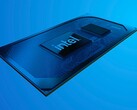It’s widely known how controversial results from UserBenchmark can be, especially when it comes down to an AMD vs. Intel comparison. Those controversies have already been documented, so of course, have a pinch of salt to hand when it comes down to reading this incredible 1-core result an Intel Core i7-11700 sample managed on the site: 178 points. The current 1-core chart leaders, the i7-1185G7 and Ryzen 7 5800X, both have average scores of 160 points. For further perspective, the maximum recorded by the Zen 3 part from AMD was 167 points. This makes the i7-11700’s achievement look all the more remarkable now.
As always, a single result on a synthetic benchmark has to be considered as a theoretical maximum score. The Intel Core i7-11700’s result of 178 points is +21.09% above the Comet Lake i7-10700K’s average score of 147 points. The previous-generation chip has the “K” modifier meaning it’s unlocked and in theory can offer higher performance than the non-K chip. The Intel Core i7-10700K has intimidating clocks of 3.8 GHz to 5.1 GHz and operates on 125 W (PL1) and 229 W (PL2) TDPs. The Intel Core i7-11700 manages much better 1-core results on UserBenchmark with rates of 2.5 GHz to 4.5 GHz, and it has been reported that it has 65 W (PL1) and 224 W (PL2) power limits.
The comparison that’s more likely to ruffle a few red-colored feathers is the one between the Rocket Lake chip and the Zen 3 part. The AMD Ryzen 7 5800X is a terrific processor that has proved Team Red can produce chips that excel in both single-core and multi-core workloads. But the i7-11700 beats the Ryzen 5000 part by +11.25% (average score) and +6.59% (maximum score) in its solitary UserBenchmark run inside a Dell OptiPlex 5090 desktop PC. It will be interesting to see what kind of record-breaking 1-core scores the Intel Core i7-11700K and i9-11900K drum up when they start appearing on the same tendentious website.
Source(s)
UserBenchmark (1/2/3/4) & @TUM_APISAK



















